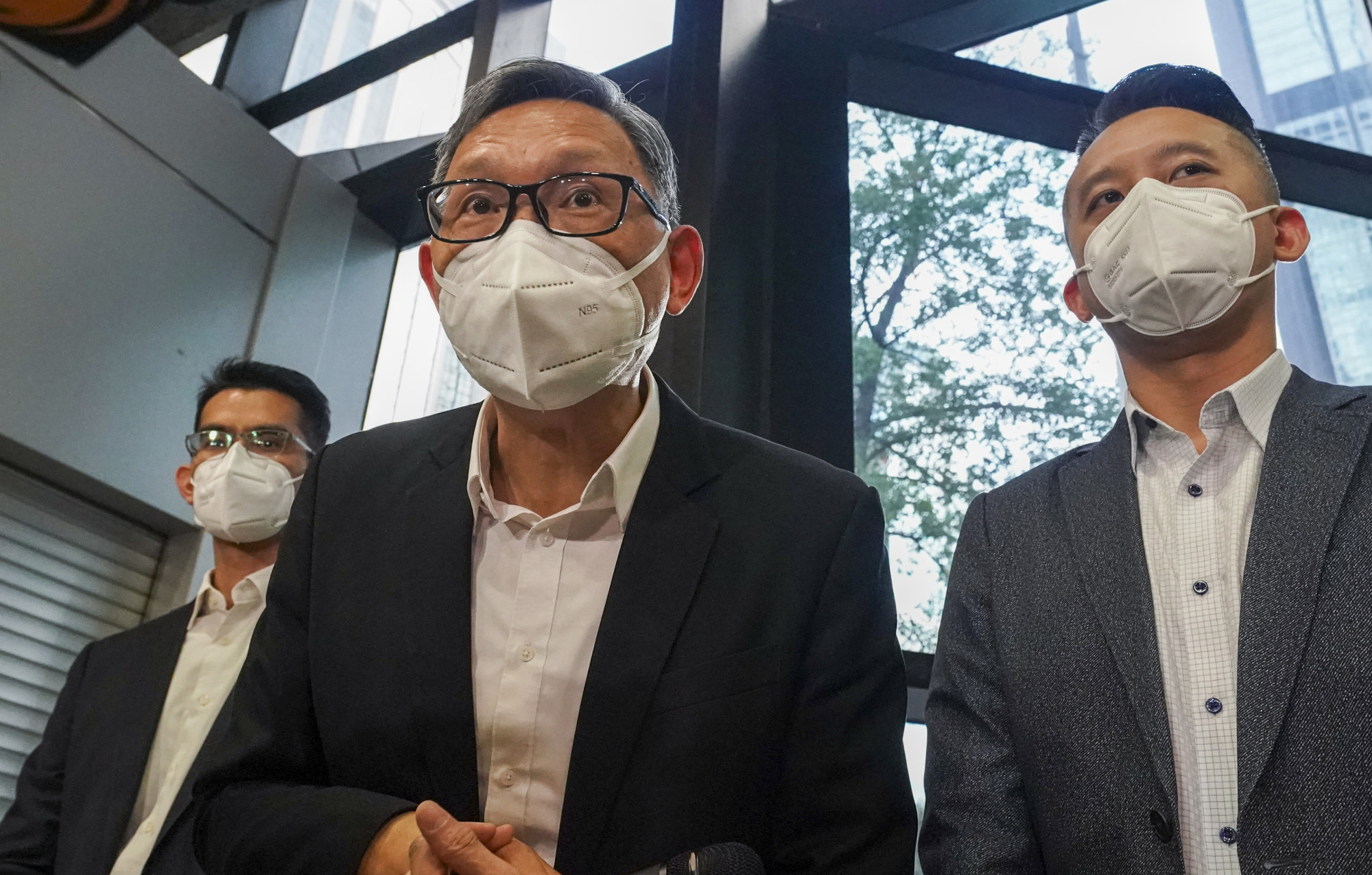
Sixth Hong Kong suspect arrested over human-trafficking case involving job scams, with at least 37 victims lured to Southeast Asia and held against will
- Man, 29, detained on Monday on suspicion to defraud a day after five others were picked up
- One victim returns to the city on Monday – the first to do so with the help of authorities since a task force was set up last week
The development came as a victim returned to the city on Monday – the first to do so with the help of authorities since a task force was set up last week.
Earlier in the day, a 29-year-old man was detained on suspicion of conspiracy to defraud after five residents were arrested on Sunday in connection with the scams.
One of the suspects, Ma Che-hou, 30, was provisionally charged with conspiracy to defraud and brought to Eastern Court on Monday morning.
Ma, who lives in Ma On Shan, was accused of duping victim Ng Sik-ming by falsely claiming Ng would receive 1,000,000 baht (US$27,878) in Thailand, and later imprisoning him in Myanmar. He also allegedly swindled a woman named Ng Pui-lam out of HK$35,530 (US4,555).
The male victim who made it back on Monday had reportedly raised money to pay for his release from his captors and returned to Thailand from Myanmar last week.
But he was cash-strapped and stranded in the resort city of Pattaya before the Office of the Commissioner of the Ministry of Foreign Affairs, the Chinese embassy in Thailand and the Security Bureau’s dedicated task force helped him fly home.
The man was seen sitting in a wheelchair and escorted by immigration officers and health workers at Hong Kong International Airport after his arrival.
A bureau spokesman said the man had thanked the country and the Hong Kong government for their proactive follow-up efforts and vigorous help which secured his prompt and safe return.
Undersecretary for Security Michael Cheuk Hau-yip had earlier said that as of 8am on Monday, authorities had received one more request for help involving a scam victim, on top of the 36 reported a day ago.
Among the 37 victims, 14 were still trapped in Cambodia, with another nine in Myanmar. Fourteen were confirmed as safe, 12 of whom had returned to Hong Kong, including the one on Monday night.

“Two of them opted to remain [in the region] for now. We are actively helping one of the victims who is willing to return to Hong Kong,” Cheuk told a radio programme in the morning.
He added that those still stranded in the countries had restricted freedom but their safety was “not under great threat at the moment”.
Employment scammers posted job advertisements on social media for positions in gaming, real estate or simply opening bank accounts, promising high salaries and low entry requirements, he said.
After being lured to the Southeast Asian countries, the victims’ passports would be seized and they would be brought to “scamming centres”, where anyone who refused to cooperate or pay a ransom would face inhumane treatment, police earlier revealed.
The force on Sunday reported that at least 32 men and four women, aged between 19 and 57, were either earlier or currently detained against their will in Southeast Asia.
Cheuk said authorities had received more than 200 messages from a WhatsApp hotline set up on Saturday for victims or their families to send requests for help, but only four of them were relevant to the scams.
He said more than 100 messages were general inquiries irrelevant to the cases and another 110 were pranks, urging the public not to abuse the hotline.
“The Immigration Department is collaborating with the Office of the Commissioner of the Ministry of Foreign Affairs as well as local consulates to employ all possible methods to conduct mediation and rescues,” Cheuk said. “The police force has also been following up with local enforcement units through Interpol’s platform.”
In terms of arranging victims’ return, he added, the government had sought help from local Chinese embassies and the Hong Kong Economic and Trade Offices situated in the region.
On whether families of the victims should pay ransoms demanded by the fraudsters, Cheuk said they should first contact law enforcement agencies, including the Immigration Department and police. Their cases will be handled by the force’s organised crime and triad bureau, which will offer advice to the families.

Lawmaker Gary Chan Hak-kan of the Democratic Alliance for the Betterment and Progress of Hong Kong on Monday said his group had received a request for help last week from a victim who had travelled to Thailand over a job advertisement and was later sent to Myanmar.
The Post learned that the syndicate in question had demanded a ransom of about HK$80,000 in this case.
Chan told a radio programme that the victim had been detained for a month and was only given food after meeting a daily work target. The family could only communicate with the individual for three minutes a day under the supervision of someone who spoke Chinese, while no mention of work or rescue was allowed.
He said the victim was emotionally unstable and abuse was suspected.
Additional reporting by Danny Mok

